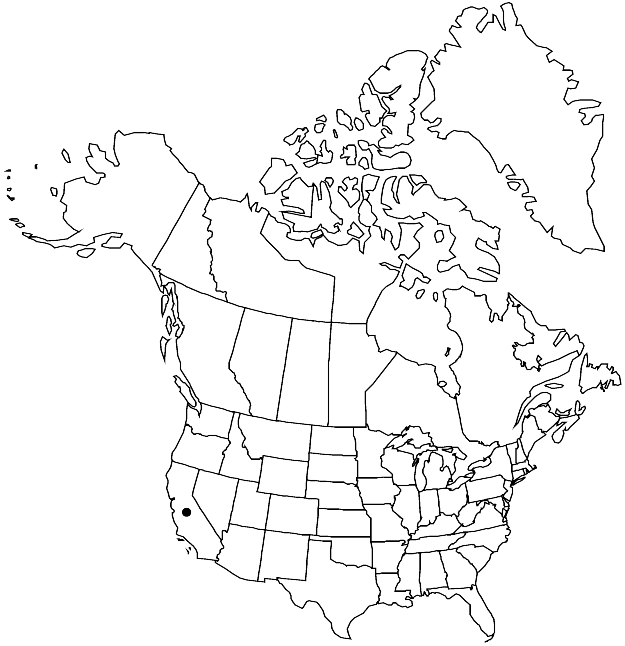Orthotrichum shevockii
Bryologist 101: 435, figs. 1 – 23. 1998.
Plants to 1.5 cm. Stem leaves rigid, erect when dry, ligulate- to elliptic-lanceolate, to 5 mm; margins recurved from just beyond base to near apex, entire; apex obtuse to rounded-acute; basal laminal cells short-rectangular, walls thin, not nodose; distal cells 13–16 µm, 1-stratose, papillae 2 or 3 per cell, simple to 2-fid, high; marginal cells 2- or 3-stratose. Specialized asexual reproduction absent. Sexual condition gonioautoicous. Seta to 0.5 mm. Capsule immersed, short-cylindric to oblong-ovate, 1–2 mm, strongly 8-ribbed entire length, constricted below mouth when dry; stomata immersed, 2/3 to completely covered by subsidiary cells, cells projecting, inner walls thickened; peristome double; prostome absent; exostome teeth 8, reflexed, papillose to papillose-reticulate near apex; endostome segments 8, occasionally 16, well developed, of 1 row of cells, smooth or roughened. Calyptra oblong, smooth, hairy, hairs papillose. Spores 15–18 µm.
Habitat: Dry granitic rock
Elevation: moderate to high elevations (1100-1600 m)
Discussion
Of conservation concern.
Orthotrichum shevockii is known only from the southern Sierra Mountains. The species is distinguished by small, blackish tufts, obtuse to bluntly acute leaf apices, strongly multipapillose distal laminal cells, 2-stratose (or more) leaf margins, and completely immersed, strongly 8-ribbed capsules with immersed stomata, reflexed exostome teeth, well-developed endostome, and papillose calyptra hairs.
Selected References
None.
